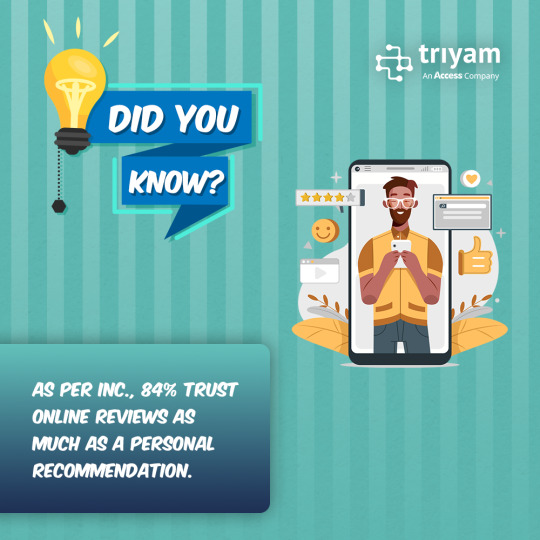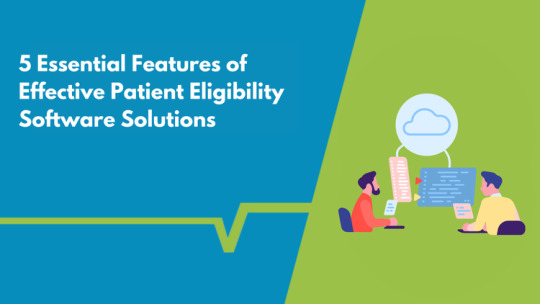#patient data management
Text
In the modern healthcare landscape, automating administrative tasks is becoming increasingly crucial for any healthcare business in Casper, Wyoming. Integrating automation technologies can significantly enhance efficiency, reduce errors, and free up valuable time for healthcare professionals to focus on patient care. This blog explores the key benefits and applications of automating administrative tasks in healthcare settings.
0 notes
Text
A digital patient onboarding platform can improve patient experience and healthcare business workflows. Check out our hospital and clinical trial digital transformation solutions for easy processes and effective data management.
#clinical trial management solutions#clinical trial portal#clinical research solutions#patient onboarding platform#patient onboarding process#patient data management#patient onboarding solutions#liferay for healthcare ctms#patient onboarding
0 notes
Text
any other health information managers (medical records technicians) here on tumblr who feel like smashing their computers and set it on fire whenever I can't understand the doctor's handwriting or when they invent brand new abreviations out of their asses or is it just me
#like. do they not realize the reason why they have to write shit down in the first place? BECAUSE WE NEED THAT INFO AFTERWARDS#if you can't write properly then get a fucking accomodation like ask if u can write on the computer or something#i cannot risk miscoding medical information about a patient just bc the doctor can't write for shit#like do they not understand the important and dangerous and unprofessional impact it could have for the integrity of patients' data????#health information management
0 notes
Text
How Effective Healthcare Network Management Is Improving Lives
Ameer Adonis Advanced Specialist: Health Facility Strategy Unit from Medscheme, an AfroCentric Group company, writes about the power of healthcare network management in improving healthcare and renal care outcomes for patients:
At the beginning of this month we observed Kidney Awareness Week with the intent to shine a light on a critical yet often overlooked aspect of healthcare—network…

View On WordPress
#Africa#critical#data#Data Management#Free to Republish#global#health#Healthcare#Money#MyPR#new#News#ONE#patient care#Press Release#provider#Release#South Africa#Stage#Video
0 notes
Text
Clinical Trials Support Services: Enabling Medical Advancements through Quality Research

Types of Clinical Trials Support Services
Clinical trial support encompasses a wide array of services required to conduct medical research efficiently and effectively. Some of the key types of support services include:
Regulatory Support
Clinical trials must adhere to stringent regulations and standards to ensure safety and ethical conduct. Regulatory support services help navigate these requirements and secure necessary approvals. Regulatory experts aid with preparation of documents such as clinical trial applications and maintaining compliance throughout the trial lifecycle.
Patient Recruitment Support
Finding suitable human volunteers is one of the biggest challenges in clinical research. Dedicated patient recruitment teams leverage different online and offline strategies to promote awareness of trials and screen potential candidates as per eligibility criteria. Their efforts are vital for timely patient enrollment and study completion.
Site Management Support
Managing the operational aspects at Clinical Trials Support Services sites spread across locations requires dedicated coordination. Site management services take care of site initiation activities, training investigators and staff, addressing their queries, facilitating logistics and ensuring protocol adherence. This helps sites function efficiently and focus on participant care.
Biostatistics and Data Management Support
Clinical trials generate huge volumes of data at each stage that needs to be captured, assessed and reported as per quality standards. Biostatisticians and clinical data managers employ their analytical skills and use specialized software to plan the data collection methodology, perform interim analyses, and compile the clinical study report.
Medical Writing Support
From drafting patient consent forms and recruitment material to compiling clinical study reports – medical writing plays a significant role in clearly communicating critical information for different stakeholders. Experienced medical writers utilize their medical and regulatory expertise to develop high-quality documentation tailored to the audience.
Safety Monitoring and Pharmacovigilance
Ensuring participant safety is the utmost priority in clinical research. Independent safety boards and pharmacovigilance teams closely monitor trials for any adverse events. They analyze trends, determine causality and take necessary actions to minimize risks to human subjects.
Logistics Support
Timely shipment of investigational products, medical supplies and equipment to sites spread across multiple countries requires efficient logistics management. Logistics coordinators arrange for customized solutions like GPS-enabled transportation, proper storage facilities and distribution tracking systems.
Advantages of Outsourcing Clinical Trial Support Services
With the complexity of modern clinical trials, most pharmaceutical and biotech organizations leverage specialized clinical research organizations (CROs) to outsource support functions:
Access to Expertise
CROs employ multidisciplinary teams of highly qualified clinical research experts with vast international experience. Their combined and focused skillsets can deliver superior services than an in-house function.
Cost Savings
Outsourcing non-core operations frees up internal resources for other strategic activities. It also offers scalability with pay-as-you-go fee-for-service models to match financing needs at each stage. This provides significant cost advantages over building in-house infrastructure.
Infrastructure and Technology
CROs make large investments in state-of-the-art technologies, facilities and resources required to support global clinical trials. Outsourcing leverages these resources that would otherwise require high capital expenditure for sponsors.
Resource Flexibility
CRO staffing can easily scale up or down based on changing study requirements without long-term commitments. This flexibility enables sponsors to focus on core development work while managing variable external support needs.
Compliance Expertise
With experience spanning hundreds of trials globally, CROs have in-depth knowledge and polished processes to ensure compliance with regulations in different regions. This mitigates risks of non-compliance for sponsors.
Conducting Large Multinational Trials
Some clinical programs involve complex trials across dozens of countries simultaneously. Few sponsors have the bandwidth to internally coordinate such large-scale global operations. CROs specialize in seamlessly executing multinational clinical programs.
Quality Clinical Trial Support Services Define Clinical Research Success
A few key aspects guarantee the delivery of high-quality clinical trial support services:
Extensive Therapeutic Experience
CROs with proven track record of supporting various therapeutic areas can adeptly cater to specific sponsor requirements and anticipate challenges through their past learning.
Robust Quality Management Systems
Adopting global quality standards like GCP, ISO certified processes and ongoing audits ensure consistent adherence to protocol, timely issue resolution and generation of reliable data.
Technology Integrated Solutions
Leveraging customized applications for functions like patient recruitment, site payments, interactive drug supply chain tracking and integrated clinical data capture enhances efficiency.
Prequalified Global Network
A pre-established pool of qualified clinical sites, laboratories and investigators across regions facilitates rapid study startup. Their pre-qualification saves time in site feasibility assessments.
Proactive Communication Culture
Regular sponsor interactions, performance reporting and swift issue escalation enable identifying risks early and collaborative troubleshooting. This drives seamless collaboration.
Clinical Trials Support Services Talent Development Focus
Ongoing training and skill development programs for both sponsor and CRO staff keep the clinical research talent abreast with evolving science and best practices to deliver best quality.
Get more insights on Clinical Trials Support Services
Priya Pandey is a dynamic and passionate editor with over three years of expertise in content editing and proofreading. Holding a bachelor's degree in biotechnology, Priya has a knack for making the content engaging. Her diverse portfolio includes editing documents across different industries, including food and beverages, information and technology, healthcare, chemical and materials, etc. Priya's meticulous attention to detail and commitment to excellence make her an invaluable asset in the world of content creation and refinement.
(LinkedIn- https://www.linkedin.com/in/priya-pandey-8417a8173/)
#Clinical Trials Support Services#Medical Research#Trial Management#Clinical Study#Patient Recruitment#Data Management#Regulatory Compliance
0 notes
Text
Health Tech Horizon: Perfecting Customer Engagement with Cloud Connections
With patient-centricity emerging as a cornerstone of modern healthcare, the need to integrate innovative healthcare data management software is fundamental. As per Salesforce, 80% of customers emphasize on their experience with a company as much as its products and services. Top-tier customer engagement is the linchpin for delivering truly personalized care with next-gen healthcare data archiving services.
Triyam understands the role of innovative legacy data archiving solutions here. From seamless patient data migration to retention, we’ve got you covered. Our experts decommission legacy systems to retain data into our new archival SaaS system Fovea EHR Archive – HIPAA-attested, SOC2-certified, cost-saving compliance and cloud-secured – your one-stop solution to master modern customer engagement.
Did you know: As per Inc., 84% trust online reviews as much as a personal recommendation.

Understanding Customer Engagement in Healthcare
Customer engagement in healthcare refers to the ongoing interaction between patients and healthcare providers based on trust, satisfaction and effectiveness in one’s healthcare journey. Innovative EHR management is key to optimal patient care to which Triyam is profusely dedicated to. Factual evaluation of a patient’s historical records ensures accurate diagnosis and decision-making.
Why prioritize patient satisfaction within healthcare organizations?
Triyam recognizes the correlation between higher patient satisfaction with better adherence to treatment plan and a positive reputation for the healthcare facility elevated with satisfied patients’ recommendations. Streamlining healthcare workflow with smart tech solutions to cloud-manage patient data is key to driving organizational and caregiving growth.
More insights: Complete Guide to Data Archiving
Key Challenges in Traditional Methods
Communication Barriers: Limited channels – phone calls and paper-based hindered interaction
Lack of Personalization: Inefficient one-size-fits-all approach untailored to individual patient needs
Data Fragmentation: Challenging to access comprehensive patient data on time
Key Benefits of Revolutionary Health IT Solutions
Personalization: Real-time data analysis, facilitating personalized treatment plans
Seamless Communication: Streamlined communication channels for continuous engagement – recommendations, reminders, feedback
Trust and Transparency: Secure handling of sensitive health data to build trust
Further Info: EHR Data Management
Supercharge Customer Engagement with Triyam’s Cloud Management
81% of consumers feel dissatisfied with their healthcare experience. Triyam takes lead in bridging this gap between incomprehensive caregiving facilities and the dynamic potential of top-notch healthcare services with innovative cloud solutions. With next-gen EHR archival using our SaaS gem Fovea, here’s what we commit to:
Data-driven insights
Secured long-term data storage
Interoperability
Affordability
Improved patient experience
Absolute compliance
Quicker ROI
Increased productivity
Streamlined workflow
Easy data access
Higher user satisfaction
Efficient release of information
Scalability for future additional data
Read more: Case Study on EHR Data Archival
Stay Connected with Triyam’s Futuristic Customer Care
LinkedIn reports a seismic shift in healthcare towards connected care, where virtual services have become a standard for customer engagement. Drawing on Rock Health’s 2023 Consumer Adoption of
Digital Health Survey, 76% of survey respondents reported that they had used virtual care services.
Here’s how Triyam integrates itself to ensure top-notch virtual engagement:
Personalized Health Experiences: Real-time data analytics allow personalized health experiences tailored to individual patient needs
Proactive Healthcare Management: Next-gen cloud solutions for EHR data storage leads to increased understanding
Predictive Analytics for Preventive Care: Identifies patterns and predicts potential health risks for preventive interventions
Stay ahead in the caregiving game!
Enhance patient engagement in healthcare with Triyam’s cutting-edge health IT solutions, your key to mitigate health data management roadblocks.
Connect today!
#data migration services#EMR data management#EHR data management#Healthcare data management#Healthcare data management software#patient data migration#legacy data migration
0 notes
Text
Hospital Management Software Demystified: Understanding the Basics

In the intricate world of healthcare, the efficient management of hospital operations is paramount to ensuring quality care delivery. Hospital management software serves as the backbone of modern healthcare institutions, streamlining processes, and enhancing overall efficiency. In this blog, we will delve into the fundamental aspects of hospital management software, shedding light on its key components and functionalities.
Patient Data: At the heart of any healthcare institution lies the comprehensive patient data management system facilitated by hospital management software. From admission to discharge, every interaction and medical record pertaining to a patient is meticulously documented and stored electronically. This not only ensures easy access to patient information but also facilitates seamless communication among healthcare providers.
E-Records: Gone are the days of paper-based record-keeping systems. With the advent of hospital management software, the transition to electronic health records (EHRs) has revolutionized the way patient data is managed. E-records not only minimize the risk of errors associated with manual documentation but also enable healthcare professionals to retrieve vital information swiftly, thereby enhancing the quality and efficiency of patient care.
Admin Efficiency: Efficient administration is the cornerstone of effective hospital management. Hospital management software plays a pivotal role in optimizing administrative tasks, ranging from appointment scheduling and inventory management to billing and invoicing. By automating these processes, administrative staff can allocate their time and resources more effectively, thereby improving overall productivity and service delivery.

Staff Management: Proper allocation and management of human resources are essential for the smooth functioning of any healthcare institution. Hospital management software offers robust tools for staff scheduling, task assignment, and performance tracking. By centralizing staff management processes, healthcare administrators can ensure adequate staffing levels and optimize workforce utilization, leading to improved patient outcomes and staff satisfaction.
Analytics & Reporting: In the era of data-driven decision-making, hospital management software provides invaluable insights through advanced analytics and reporting capabilities. By analyzing key performance metrics and trends, healthcare administrators can identify areas for improvement, streamline operations, and enhance the overall quality of care. Moreover, comprehensive reporting functionalities enable institutions to meet regulatory requirements and demonstrate compliance with industry standards.
In conclusion, hospital management software serves as a cornerstone of modern healthcare delivery, revolutionizing the way institutions manage patient data, streamline operations, and optimize resource utilization. By leveraging the power of hospital management software, healthcare institutions can enhance efficiency, improve patient outcomes, and stay ahead in an ever-evolving healthcare landscape.
0 notes
Text
Best patient data management system
Procify360, the best hospital management software can help healthcare providers to engage with patients more effectively. healthcare management system can leads to improved patient compliance, better health outcomes and increased patient loyalty.
0 notes
Text
Clinical Trials : Holistic Exploration of the Current State and Future Outlook
The global clinical trials market size is expected to reach USD 123.5 billion by 2030, expanding at a CAGR of 6.49 from 2024 to 2030, according to a new report by Grand View Research, Inc. An increase in the volume and complexity of clinical trials has been witnessed lately, which plays an important role in the R&D of new drugs and products. The market witnessed a decline of 6% in 2020 owing to the COVID-19 pandemic. However, the market is projected to recover from 2021 onwards. In addition, clinical trials have become increasingly costly, adding to the overall cost of developing a drug.

Clinical Trials Market Report Highlights
The phase III clinical trials segment dominated the market with a 53.3% share in 2023. This can be attributed to the complexity of this phase
The interventional studies segment dominated the market in 2023. It is one of the most prominent methods used in clinical trials in the study design segment owing to the increasing demand for the intervention for clinical trials by researchers
North America held 50.3% of the market share in 2023. Favorable government initiatives and the presence of a large number of players in the U.S. that offer advanced services are responsible for market growth
Asia Pacific region is anticipated to grow at the fastest CAGR over the forecast period owing to the increasing patient pool and cost-efficient services.
For More Details or Sample Copy please visit link @: Clinical Trials Market Report
The increasing need for developing new drugs for chronic diseases, such as cancer, respiratory disorders, diabetes, cardiovascular diseases, and others, is creating immense pressure on the healthcare industry. The COVID-19 pandemic and the increasing demand for developing a suitable treatment are driving the market. The high number of people affected by the disease further depicts an increasing need for therapeutics & vaccines. Currently, there are 288 therapeutics and 106 vaccines under development, out of which, nearly 7.0% of therapeutics are in Phase IV, 21.0% in Phase III, and 43.0% & 13.0% in Phase II & Phase I, respectively.
The pandemic has resulted in the global disruption of traditional onsite clinical trials. Hence, regulatory bodies worldwide have undertaken various initiatives for fast-tracking clinical trials for the development of innovative solutions. One such instance is Solidarity, an international clinical trial launched by the WHO to find effective treatment against COVID-19. Although the pandemic has forced many medical device & drug developers to revise the approach to such crises, integrating best practices within clinical trial procedures & adapting to virtual trials, which can support the continuous development of therapeutics.
ClinicalTrials #HealthcareResearch #MedicalInnovation #DrugDevelopment #PatientRecruitment #Biopharmaceuticals #ClinicalResearch #RegulatoryCompliance #DataManagement #PatientEngagement #PrecisionMedicine #TherapeuticTrials #CROs #ClinicalResearchOrganizations #GlobalHealth #ClinicalStudyDesign #PharmaceuticalIndustry #BiotechResearch #ClinicalEndpoints #HealthTechIntegration
#Clinical Trials#Healthcare Research#Medical Innovation#Drug Development#Patient Recruitment#Biopharmaceuticals#Clinical Research#Regulatory Compliance#Data Management#Patient Engagement#Precision Medicine#Therapeutic Trials#CROs#Clinical Research Organizations#Global Health#Clinical Study Design#Pharmaceutical Industry#Biotech Research#Clinical End-points#HealthTech Integration
0 notes
Text
Online Hospital Management software to maintain patient data security. Digital healthcare system for doctors in India. Cloud-based solution for Lab and pharmacy.
0 notes
Text

Healthcare Software Solutions Company
A Healthcare Software Solutions Company is a company that specializes in creating and maintaining websites for healthcare organizations, such as hospitals, clinics, pharmacies, laboratories, and insurance companies. A healthcare website design company can help healthcare organizations improve their online presence, reach, and reputation, as well as enhance their patient care and satisfaction.
#Custom Healthcare Apps Development Company#Medical Mobile App Development Services#Patient Data Management Software#Patient Information Management Software#Healthcare Saas Solutions
0 notes
Text
The Crucial Role of Enterprise Risk Management in Modern Healthcare

Imagine you're a tightrope walker, thousands of feet above the ground. Without a safety net, any misstep can lead to disaster. Now, think of the healthcare sector as this tightrope walker. With the myriad of complexities, regulations, and unpredictable factors that can pop up every day, having a robust safety net is paramount. Entering the safety net we all need: enterprise risk management software in healthcare. This is not just any safety net; it's a dynamic, adaptable, and resilient one that assures everyone on the rope can perform their best without the constant fear of falling.
Ready to know more? Let's unravel the magic thread by thread, shall we?
What is Enterprise Risk Management in Healthcare Anyway?
You might be wondering, what's the big deal about enterprise risk management in healthcare? Let's break it down. At its core, it's about identifying potential risks, assessing them, and putting in place strategies to manage those risks. Think of it as a proactive approach rather than a reactive one.
In the healthcare sector, there are countless unpredictable factors. From patient care challenges to technology hiccups to regulatory changes. Having a system that spots potential threats before they escalate? That’s the golden ticket.
And guess what? This golden ticket isn't reserved for a select few. Every stakeholder, from medical professionals to administrative staff, plays a part in making enterprise risk management in healthcare a success.
By embracing this approach, healthcare providers ensure smoother operations, better patient outcomes, and yes, a sigh of relief knowing they're backed up by a robust system.
The Game-Changing Benefits of Enterprise Risk Management in Healthcare
Sure, enterprise risk management in healthcare sounds neat, but what's in it for the healthcare sector? Well, a lot. For starters, it helps in early risk detection. By spotting issues before they blow up, institutions can save resources, reputation, and most importantly, lives.
Secondly, it promotes a culture of safety. When everyone is tuned into the risk management frequency, it fosters an environment where safety is the norm, not the exception. It's like having a team where everyone is a goalkeeper, always on the lookout, and ready to defend.
Lastly, it enhances decision-making. Armed with the right information and tools, healthcare providers can make informed decisions. It's like having a roadmap in a maze, guiding you at every twist and turn.
Real-Life Instances: Enterprise Risk Management in Action
Picture this: A hospital is planning to implement a new electronic health record (EHR) system. It’s shiny and promising, and everyone’s excited. But with this system come potential risks: data breaches, system downtime, and training challenges, to name a few.
By employing enterprise risk management, the hospital can anticipate these risks. They can put measures in place to mitigate them. So instead of panicking when there's a system glitch, they have a backup plan, trained staff, and solutions ready to deploy.
Another scenario? A sudden outbreak of a contagious disease. With a solid risk management plan, hospitals can predict resource needs, mobilize teams faster, and ensure the safety of both patients and staff.
Best Practices to Maximize Enterprise Risk Management in Healthcare
So, you're sold on enterprise risk management in healthcare. That’s great, but… how do you make the most of it?
Begin by fostering a culture of open communication. Encourage staff at all levels to voice concerns and observations. Remember, it’s a team game.
Secondly, invest in training. Equip your team with the skills and knowledge they need to be effective risk managers. It’s like giving them a magnifying glass to spot even the tiniest of threats.
Lastly, keep revisiting and refining your strategies. The healthcare landscape is ever-evolving, and so should your risk management approach. It's about being agile, adaptable, and always on your toes.
Challenges to Implementing Enterprise Risk Management
While the benefits of enterprise risk management in healthcare are plenty, it’s not without its challenges. First up, is resistance to change. It’s human nature. Introducing a new system or approach can often meet with skepticism. The key? Consistent communication and highlighting the bigger picture.
Then there’s the challenge of resources. Implementing a robust risk management system requires investment: both time and money. Here, long-term vision becomes crucial. It’s not about the immediate costs, but the long-term savings and benefits.
Lastly, the vastness of the healthcare sector can be daunting. With so many departments and functions, integrating them under one risk management umbrella can seem overwhelming. But remember, step by step, brick by brick, it’s doable.
The Future of Enterprise Risk Management in Healthcare
The horizon of healthcare is vast and ever-evolving, and as we stand at its edge, enterprise risk management in healthcare looms large, promising a safer and more efficient future.
Firstly, with the integration of artificial intelligence and machine learning, risk management is on the cusp of a revolution. Predictive models can analyze vast data sets, recognize patterns, and forecast potential risks way before they materialize.
Furthermore, with the global community becoming more interconnected, the sharing of risk management strategies across borders will become commonplace. Hospitals in New York might soon be implementing strategies tested and refined in Tokyo or Mumbai. This cross-pollination of ideas ensures that best practices are not confined within borders but are shared, refined, and implemented globally.
Additionally, as patient care becomes more personalized with treatments like gene therapy and personalized medicine, risk management will need to adapt. Enterprise risk management in healthcare will play a pivotal role in ensuring that these bespoke treatments are delivered safely, taking into account the unique risks they may present.
But it's not just about technology and global collaboration. The future will also see a stronger emphasis on the human aspect. Emotional intelligence, understanding patient behaviors, and predicting human errors will become crucial components of risk management. After all, machines can crunch numbers, but understanding the human heart and mind? That’s where the real challenge and opportunity lie. For more details contact us at https://www.safequal.net/contact-us/.
Lastly, sustainability and eco-friendly practices are making waves in every sector, and healthcare is no exception. The future of enterprise risk management will also encompass strategies to reduce carbon footprints, manage bio-waste efficiently, and ensure a sustainable healthcare environment.
Conclusion
Navigating the intricate world of healthcare can often feel like walking on a tightrope. But with enterprise risk management in healthcare, the sector gets more than just a safety net. It gets a strategy, a plan, and a vision for a future where risks are not just managed but anticipated and mitigated. Embracing it isn’t just a smart move; it's the need of the hour.
Read More:
#enterprise risk management in healthcare#Enterprise Risk Management#Healthcare Safety#Patient Protection#Data Safeguard#Modern Healthcare#Effective Operations#Risk Mitigation#Healthcare ERM
0 notes
Text
The medical landscape continuously evolves, and one innovation leading the shift is telehealth. As a healthcare provider in Texas, we’ve seen the several advantages telehealth brings to patient care.
1 note
·
View note
Text
5 Essential Features of Effective Patient Eligibility Software Solutions
Discover the top 5 essential features of effective patient eligibility software solutions. Learn how real-time verification, seamless integration, comprehensive data management, easy-to-use interface, and robust security measures enhance efficiency and accuracy in healthcare. Empower your medical practice with the right patient eligibility software solutions today.

#Patient Eligibility Software#patient eligibility verification#revenue cycle management healthcare#revenue cycle management companies#patient data#patient insurance verification
0 notes
Text

Healthcare Mobile App Development Company Reimagining Healthcare
Healthcare Mobile App Development Company redesign outdated IT systems, refactor the code and migrate legacy applications to newer platforms, giving them a new lease life.
#Mobile App Development For Healthcare#Medical Appointment Booking Software#Medical Mobile App Development Company#Medical Mobile App Development Services#Medical Office Scheduling Software#Medical Scheduling Software Development#Medical Staff Scheduling Software#Mobile Healthcare App Development#Online Medical Scheduling Software#Custom Medical App Development#Electronic Medical Record Software#Electronic Medical Records Software#Healthcare App Development Company#Healthcare App Development Services#Healthcare App Development Solutions#Healthcare Apps Development Company#Healthcare Mobile App Development Company#Healthcare Mobile App Development Services#Patient Appointment System Software Development#Patient Data Management Software#Patient Information Management Software#Patient Management System Software#Patient Record Management Software#Patient Scheduling Software Development Services#Bespoke Healthcare Software App Development#Custom App Development For Healthcare#Custom Healthcare App Development#Custom Healthcare App Development Company#Custom Healthcare App Development Services#Custom Healthcare Apps Development
0 notes
Text
The importance of DICOM in patient care

- By InnoNurse Staff -
The Digital Imaging and Communications in Medicine protocol facilitates file sharing and enhances cooperation both inside and across health institutions.
Read more at HealthTech Magazine
///
Other recent news and insights
ABA Data Collecting startup SpectrumAi receives $20 million in funding from CVS Health Ventures, others (SpectrumAi/Business Wire)
India: LifeSigns, a healthtech startup, has raised Pre-Series A funding (ETHealthworld.com)
#dicom#imaging#medical imaging#data management#health it#health tech#spectrumai#india#electronic health records#ehr#applied behavior analysis#lifesigns#remote patient monitoring#digital health#communication
0 notes